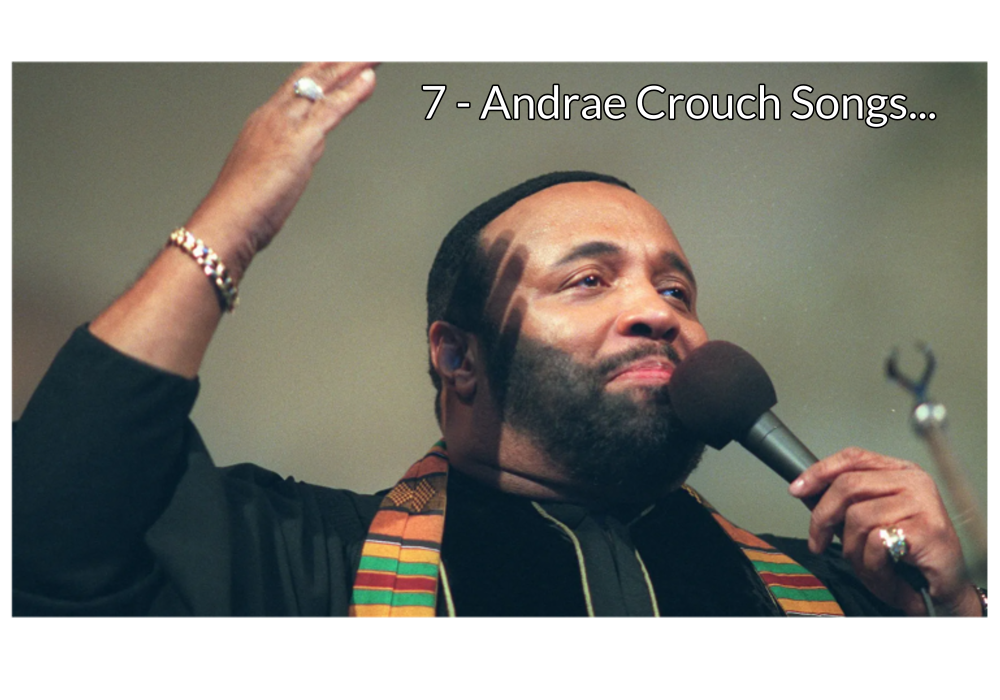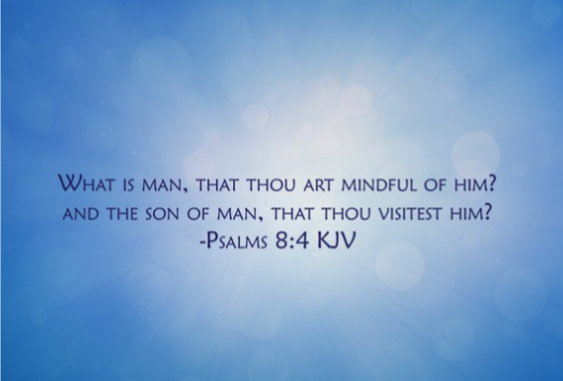(ThyBlackMan.com) There are certain voices in gospel music that don’t just sing—they minister. Andraé Crouch was one of those rare artists whose music didn’t just reach the ears; it reached the soul. For me, his songs have always felt like a gentle hand on the shoulder during hard times, or a joyful shout of praise during the good ones. Whether you’ve been a believer all your life or are simply drawn to honest, heartfelt music, Andraé Crouch offers something timeless—something that still stirs hearts decades later.
What made Crouch so special wasn’t just his ability to write a catchy hook or orchestrate a moving choir. It was his authenticity. You could tell that every lyric came from a place of deep faith, tested trials, and unwavering hope. His songs didn’t just speak about God—they felt like conversations with Him. And in today’s fast-moving world, those kinds of songs are more necessary than ever.
So, if you’re new to Andraé Crouch or just need a reminder of why his music continues to resonate so strongly, here are seven songs to revisit or discover for the very first time. Each one holds its own kind of power—and trust me, these aren’t just songs you’ll hear. These are songs you’ll feel.

1. “Soon and Very Soon”
“Soon and Very Soon” is arguably one of Andraé Crouch’s most recognizable songs, and for good reason. The infectious chorus and simple yet profound lyrics make it a staple in churches and choirs around the world. With the powerful refrain, “We are going to see the King,” Crouch captures a hopeful vision of heaven that transcends denominations and doctrines. The repetitive structure isn’t a limitation—it’s intentional. It invites participation and creates a communal spiritual experience for listeners. In fact, that repetition becomes its own kind of liturgy, one that places emphasis on anticipation and celebration.
This song emerged during a time when gospel music was still largely confined to the four walls of the church, yet Crouch managed to craft a piece that sounded as natural in a sanctuary as it did in an arena. The composition reflects a celebratory tone that speaks directly to the human desire for a better, eternal future. Whether it’s performed in English, Spanish, or Swahili, “Soon and Very Soon” has become an international anthem of hope, sung at funerals, church revivals, and community celebrations. Its universality lies in its message: something better is coming, and we don’t have to wait in despair.
Musically, the song showcases Crouch’s genius in crafting anthems that are both accessible and richly layered. The arrangement, often supported by gospel choirs, powerful brass, and energetic piano lines, elevates the message. Even in stripped-down acoustic versions, the song retains its emotional potency, which speaks to its compositional strength. The live recordings are particularly moving, capturing moments when audiences erupt in praise or break into tears. It’s one of those rare gospel songs that acts as a bridge between joy and reverence, celebration and reflection.
Even today, “Soon and Very Soon” resonates in a world seeking comfort and assurance. The message isn’t just theological—it’s emotional. People living through war, illness, social unrest, or personal crises can hear this song and be reminded that suffering is temporary. Whether performed in a grand cathedral or heard during a quiet moment of reflection, its promise of divine reunion remains evergreen. It’s a song that continues to bring joy and healing, making it an essential piece of any gospel or inspirational playlist. For those discovering gospel for the first time, it serves as a perfect introduction to both the genre and the artist’s brilliance.
2. “Through It All”
“Through It All” is one of the most personal and introspective songs in Andraé Crouch’s catalog. In this powerful ballad, Crouch testifies about his spiritual journey, acknowledging both the trials and the triumphs. The lyrics “I’ve learned to trust in Jesus, I’ve learned to trust in God” are raw and heartfelt, delivering a message of resilience that is as relevant now as it was when the song was first released. It’s a rare combination of humility and strength—Crouch isn’t afraid to admit weakness, but he also celebrates the lessons those weaknesses taught him.
This song is often used during testimonies, altar calls, and recovery meetings because it taps into the core of human vulnerability. It isn’t about perfection; it’s about process. The message is universal: everyone has struggles, but those struggles can refine your faith if you let them. What’s so profound about “Through It All” is that it doesn’t promise an easy road. Instead, it promises divine companionship along the journey. And for many, that makes it one of the most comforting gospel songs ever written.
From a musical standpoint, “Through It All” leans into soulful piano and orchestration, giving it a confessional tone that aligns perfectly with the lyrics. Crouch’s vocal delivery is unpolished in the most beautiful way—it’s emotional, cracking in just the right places to reveal vulnerability and conviction. This isn’t performance; this is testimony, and that authenticity is what makes the song so timeless. Choir versions bring out the communal aspect of the message, but solo renditions allow for deep introspection. Both interpretations work because the foundation is so solid.
In our current era of personal development and emotional honesty, “Through It All” stands as a sacred soundtrack to life’s ups and downs. It’s a reminder that spiritual growth often comes through adversity. Whether someone is facing illness, financial struggles, or emotional turmoil, this song continues to uplift and affirm their journey. It’s not just a gospel classic—it’s a spiritual roadmap. And every time a new voice sings it, the song takes on new life, proving that Andraé Crouch created something truly eternal.
3. “My Tribute (To God Be the Glory)”
This sweeping orchestral piece is a masterpiece of gospel composition. “My Tribute” is both a prayer and a performance, delivering heartfelt gratitude to God. The famous line “To God be the glory for the things He has done” becomes a musical crescendo that builds toward a climactic declaration of praise. Crouch doesn’t just sing to God—he orchestrates a full emotional experience that brings the listener into that sacred space. From the first note to the last, the song is a spiritual journey in and of itself.
There’s an elegance to “My Tribute” that sets it apart from most gospel songs. It combines the sophistication of a classical composition with the sincerity of a Sunday morning testimony. You can almost see the tears in Crouch’s eyes as he sings each line—not out of sorrow, but from a deep well of gratitude. It’s a song for the moments when words fall short and only praise will do. The lyrics serve as a powerful reminder that all talents, victories, and blessings ultimately belong to God, and acknowledging that truth brings freedom.
Musically, “My Tribute” is one of Andraé Crouch’s most sophisticated works. The song begins softly with piano and strings and grows into a full symphonic arrangement. The use of dynamics in this piece is remarkable. It rises and falls like a spiritual tide, carrying the listener through awe, reverence, and jubilation. His vocals are deliberate, and the pauses between phrases allow the words to breathe, ensuring they land with full emotional weight. It’s often performed at milestone events—weddings, graduations, retirements, and memorials—because it encapsulates a lifetime of gratitude in just a few minutes.
In today’s world, where moments of genuine humility are rare and often diluted by superficial gratitude, “My Tribute” remains a refreshing anomaly. It invites listeners to pause, reflect, and honor a higher power with sincerity. The song’s universality makes it applicable beyond the religious setting—it’s about giving credit where it’s due, whether you interpret that through a spiritual lens or simply as a call to remain grounded. It’s not just a song—it’s a soul-cleansing experience and one of Crouch’s most enduring spiritual gifts to the world. Its message continues to shine brightly, proving that humility and reverence will never go out of style.
4. “Take Me Back”
“Take Me Back” is a moving call to spiritual restoration. In it, Crouch pleads, “Take me back to the place where I first received you,” tapping into a universal longing for innocence, purity, and renewed connection with the divine. The simplicity of the message is powerful. It speaks to believers who’ve wandered from their faith and long for reconciliation. The brilliance of the song lies in its vulnerability—it’s not a cry of defeat, but a request for revival, a plea from someone who knows what it feels like to be in the presence of God and desperately wants to return to that place.
What’s remarkable about “Take Me Back” is its emotional honesty. Crouch doesn’t pretend to have all the answers or maintain a picture of spiritual perfection. Instead, he lays bare the fatigue and frustration of walking away from God and the longing to be realigned. That level of spiritual transparency was rare in the 1970s gospel scene, which often focused on victory and deliverance. This song carved out space for confession and desire, making it feel incredibly personal for the listener. It also became a healing tool in revival meetings and personal devotionals.
Musically, the song leans into 1970s soul influences with a slow tempo and a groove that feels both melancholic and hopeful. The blend of organ, bass, and light percussion supports the vocals perfectly without overpowering them. Crouch’s delivery is intimate, as if he’s having a one-on-one conversation with God, making the listener feel like an eavesdropper on something deeply sacred. Today, as spiritual deconstruction and re-examination become more common, “Take Me Back” serves as a reminder that it’s okay to begin again—and that the divine welcomes our return with open arms.
5. “The Blood Will Never Lose Its Power”
One of Andraé Crouch’s earliest hits, “The Blood Will Never Lose Its Power” has become a gospel classic. Written when he was just a teenager, the song showcases a theological depth and emotional resonance that belied his age. Its core message is simple yet profound: the redeeming power of Christ’s sacrifice is eternal and unchanging. This theme has carried through generations, making it one of the most sung and recorded gospel songs in church history. Its enduring popularity is a testament to its ability to speak to the deepest needs of the human soul.
The song’s slow, meditative pace allows each lyric to settle in. With lines like “It reaches to the highest mountain, and it flows to the lowest valley,” Crouch paints a picture of divine grace that knows no bounds. The accompanying music—rich with organ swells and tender choir backing—adds emotional gravity to the track. It feels like a hymn from another time, yet it remains incredibly current in its spiritual message. The poetic imagery in the lyrics makes it relatable to anyone who has ever felt unworthy yet saved, broken yet redeemed.
Even in a contemporary gospel landscape filled with flashy production and high-energy performances, this song endures. It’s often covered in church services and concerts, and its message remains a source of strength during times of grief, illness, and spiritual uncertainty. “The Blood Will Never Lose Its Power” is more than a song—it’s a spiritual anchor that continues to hold believers steady through life’s storms. Whether you’re facing hardship or simply in need of assurance, this track offers a reminder that divine grace is not only sufficient—it is eternal, unshakable, and accessible at all times.
6. “Jesus Is the Answer”
“Jesus Is the Answer” is one of those quintessential Crouch songs that merges theology with mainstream appeal. Released during a time of social upheaval in the 1970s, the song delivers a clear and confident message of hope. “Jesus is the answer for the world today / Above Him there’s no other / Jesus is the way”—the lyrics speak directly to the anxieties of any era, including our own. In a world filled with questions, confusion, and conflict, Crouch boldly points to Christ not just as a solution, but as the solution, and does so in a way that feels loving rather than dogmatic.
The beauty of the song is that it doesn’t shy away from complexity, even as it offers a clear answer. It addresses the emotional and societal turbulence many people face and frames Jesus not only as a theological concept but as a personal presence. This song quickly became a favorite among young Christians during the 1970s Jesus Movement and has remained relevant in gospel and contemporary Christian circles. Its crossover appeal helped break barriers between gospel, CCM, and secular audiences without watering down its message.
Musically, the track is a seamless blend of gospel and soft rock, with a melody that’s as catchy as it is meaningful. Crouch’s arrangement uses piano and light percussion to build a sense of calm and reassurance. The backing vocals serve as a spiritual chorus, echoing the sentiment in waves. It’s no surprise that the song crossed over into mainstream Christian music and was covered by artists like Paul Simon and even mainstream worship teams. “Jesus Is the Answer” is as necessary today as it was when it first debuted—offering clarity, peace, and faith to all who are seeking direction in a chaotic world.
7. “Can’t Nobody Do Me Like Jesus”
This upbeat and exuberant track is pure gospel joy. “Can’t Nobody Do Me Like Jesus” is a celebration of God’s personal intervention in one’s life, and the way Crouch delivers it is electrifying. From the moment the music kicks in, listeners are invited into a foot-stomping, hand-clapping praise session that refuses to be ignored. The song is a crowd favorite during live performances and church services, and it’s easy to see why. It creates an atmosphere of uncontainable gratitude and energy—this is worship at its most joyful.
The power of “Can’t Nobody Do Me Like Jesus” lies in its testimony. It’s not a vague praise song; it’s specific. “He healed my body, told me to run on”—the lyrics recall real, lived moments of divine help. Crouch makes it personal, and in doing so, gives everyone permission to celebrate their own miracles. The refrain becomes a rallying cry for anyone who’s ever experienced divine favor, and its call-and-response format makes it an instant connection between performer and audience.
The instrumentation is rooted in traditional Black gospel, with piano runs, tambourines, and a rhythm that invites movement. Crouch’s vocals are filled with excitement and praise, matched perfectly by the response of the choir. This is one of those songs that makes you want to get up and dance, shout, and testify—all at once. It channels the energy of a Sunday morning revival, no matter where you’re listening. Even decades after its release, “Can’t Nobody Do Me Like Jesus” feels fresh. Its celebratory nature connects with people across generations. It’s not just about nostalgia—it’s about joyfully declaring that divine love is personal, transformative, and better than anything else the world has to offer. It’s a perfect closer to any gospel set and a reminder that gospel music, at its core, is about community, celebration, and soul-satisfying praise.
Listening to these seven songs is more than a nostalgic trip—it’s an encounter with something deeper. Andraé Crouch gave us music that comforts, convicts, celebrates, and restores. His legacy isn’t just about Grammy wins or collaborations with legends—it’s about how his songs continue to heal broken hearts and lift tired spirits even today.
Whether it’s the joyful stomp of “Can’t Nobody Do Me Like Jesus” or the quiet surrender of “Take Me Back,” Crouch reminded us that gospel music could be both deeply personal and universally powerful. His songs still feel like prayers put to melody—prayers that many of us need in our own journeys, no matter where we find ourselves spiritually.
So the next time life feels a little overwhelming—or even when you’re just feeling grateful—put on some Andraé Crouch. Let the lyrics soak in. Sing along. Reflect. And know that you’re connecting with a body of work that continues to point people toward hope, healing, and home.
Staff Writer; Jamar Jackson

















Leave a Reply